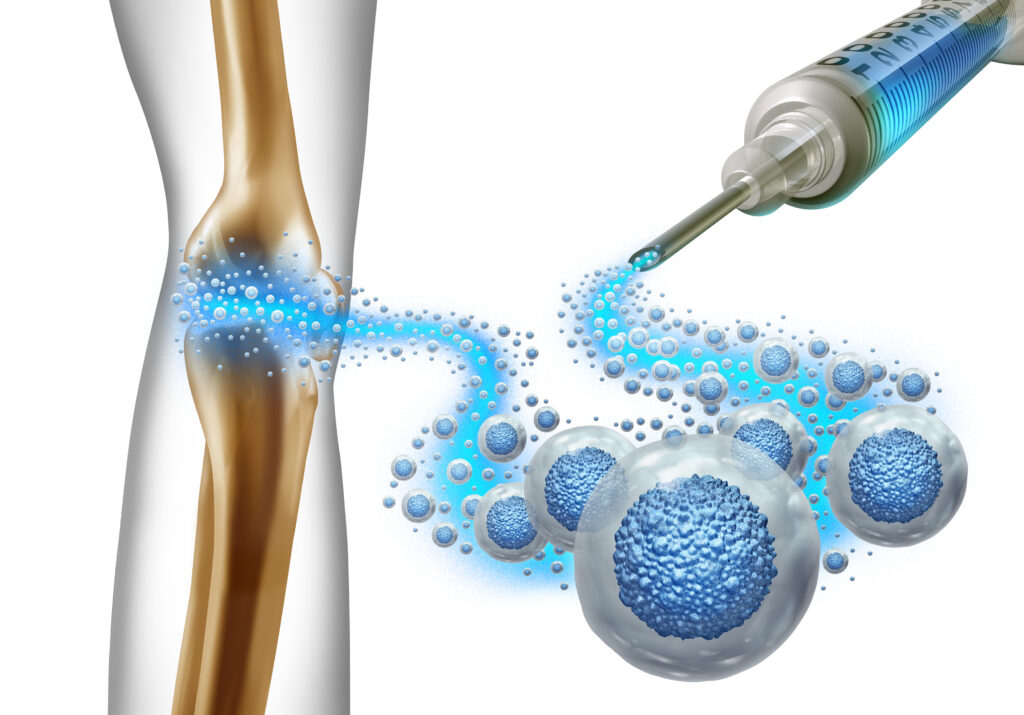Osteoarthritis (OA) is a degenerative joint disease that affects millions of people worldwide, characterized by the progressive deterioration of cartilage and joint inflammation. A significant aspect of OA pathology is synovial inflammation, driven largely by macrophages, the predominant immune cells found in the synovium. These macrophages exhibit an M1/M2 imbalance, which is closely associated with the onset and progression of OA.
Recent studies have highlighted the potential of mesenchymal stem cells (MSCs) in treating OA due to their ability to suppress inflammation effectively. However, their clinical application is hindered by challenges such as immune rejection and the risk of tumor formation. To address these issues, researchers are exploring the role of the extracellular matrix (ECM) as a mediator of MSCs’ immunoregulatory effects. By leveraging ECM, which can provide a cell-free therapeutic approach, scientists aim to minimize the risks associated with direct MSC therapies.
In a groundbreaking study, researchers developed an ECM-functionalized hydrogel by combining MSC-derived ECM with gelatin methacryloyl (GelMA). This innovative hydrogel was designed to enhance the immunomodulatory potential of MSCs by pre-stimulating them with interleukin-6 (IL-6), an inflammatory factor prevalent in OA.
In vitro experiments demonstrated that the ECM-functionalized hydrogel was effective in promoting M2 macrophage polarization, which is crucial for resolving inflammation. The hydrogel also inhibited the expression of various inflammatory genes, showcasing its robust immunoregulatory capabilities. These promising results were further validated in an in vivo rat model of OA, where the hydrogel significantly reduced synovial inflammation and cartilage matrix degradation, ultimately alleviating the progression of the disease.
To understand the underlying mechanisms at play, the researchers employed proteomics and transcriptomics analyses. These analyses revealed that the hydrogel facilitated macrophage metabolic reprogramming by regulating mitochondrial function and energy metabolism, subsequently leading to a reduction in inflammation.
The findings from this study suggest that the ECM-functionalized hydrogel represents a promising biomaterial-based strategy for treating OA by targeting critical pathological mechanisms. This innovative approach not only addresses the limitations of current MSC therapies but also opens new avenues for the development of effective treatments for OA.
The study was conducted by a team of researchers, including Zhuolin Chen, Qiming Pang, Jingdi Zhan, Junyan Liu, Weikang Zhao, Lili Dong, and Wei Huang, all affiliated with the Department of Orthopaedic Surgery at The First Affiliated Hospital of Chongqing Medical University and the Chongqing Municipal Health Commission Key Laboratory of Musculoskeletal Regeneration and Translational Medicine. Their work marks an important step forward in the quest to find effective therapies for osteoarthritis, with the potential to significantly improve patient outcomes.


